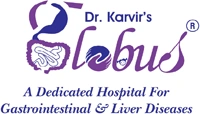IBS Specialist Doctor in Mumbai
What is IBS
A chronic gastrointestinal disorder refers to a long-lasting condition that affects the gastrointestinal (GI) tract, which includes the organs responsible for digestion and processing of food. These disorders can involve various parts of the GI tract, such as the esophagus, stomach, small intestine, large intestine, liver, gallbladder, and pancreas. Dr. Vedant Karvir is one of the best IBS Specialist Doctor in Mumbai.
Signs and Symptoms of IBS
People show different signs and symptoms of ibs, the most common being abdominal discomfort and pain. Other symptoms include:
- Abdominal cramps that get better after bowel movements.
- Loose and frequent stools (ibs with diarrhea).
- Hard, lumpy stools with strain during bowel movements (ibs with constipation).
- Flatulence
- Mucus in rectum
- Abdominal distension
- Bloating
- Loss of appetite.
Besides the above symptoms, the following should also be brought to the notice of your doctor:
- Fever
- Weight loss
- Tarry stools
- Blood in stool or urine
- Vomiting.
Are IBS and IBD the same?
Irritable bowel syndrome (ibs) and inflammatory bowel disease(ibd) are different from each other. Ibs is more of a functional disorder. Both of these may show similar signs and symptoms but ibs is less severe than ibd. Inflammatory bowel disease causes rectal bleeding, inflammation, and intestinal bleeding whereas there is no such symptom in ibs.
How is IBS diagnosed?
As ibs is difficult to diagnose, doctors generally rule out other related problems by performing lab tests, imaging studies such as ct scans, small intestinal x-rays, etc. An endoscopy or colonoscopy may be performed. Endoscopy involves inserting a small flexible tube through the mouth and passing it through the gastrointestinal tract to examine the abnormality if any. The tube has a lighted camera at one end that projects the image of the internal organs onto a screen.
What is the treatment of IBS?
Ibs can be easily treated by making dietary changes and some home remedies which include:
- Fiber-rich diet – fiber is known to promote regular bowel movements and prevent constipation. It should be included gradually in the dietmay initially lead to bloating or flatulence. People suffering from ibs-d should increase the intake of foods with soluble fiber as it taketime to digest. These foods include beans, oats, peas, apples, carrots, citrus fruits, etc.
- Reduce anxiety and stress – ensure that you eat regular nutritious meals to avoid unnecessary stress and anxiety. Reduce your caffeine intake as well. Regular exercise is a great stress-buster and relieves you from unwanted anxiety attacks as well.
- Smokers should immediately quit smoking as it aggravates the symptoms of ibs.
- Drink plenty of water and increase your fluid intake but limit the use of soda as it may cause abdominal discomfort.
- Eat frequent small meals to avoid abdominal pain and discomfort.
- Some vegetables such as cauliflower, broccoli, cabbage, and legumes may worsen the signs of bloating and are best avoided if you have the tendency of ibs.
- Low fat and high carbohydrate meals help relieve symptoms of IBS.
What are the complications associated with IBS?
Though ibs may cause discomfort and abdominal pain, there are no severe symptoms such as rectal bleeding or ulcerative colitis. However, diarrhea and constipation may aggravate hemorrhoids in people who already suffer from the same. A person suffering from ibs remains irritated and stressed which is not good for the overall health.
To know more about IBS Specialist Doctor in Mumbai book an appointment with Globus Hospital call on 98331 06104, 98331 87118 or visit our hospital at 201, Second Floor, Kothari Milestone Mall, Near Natraj Market, S.V Road, Malad West - 400064. For hospital directions click here.
Others Condition:
Bloating | Cancers of Stomach, Intestine & Liver | Constipation | Hirshsprung’s Disease | Gallstone | Dysphagia | Inflammatory Bowel Disease | Pancreatitis | SIBO | Barrett’s Esophagus | Blood in Stools / Vomitus | Celiac Disease | Diarrhea | Fatty Liver | Gerd | Irritable Bowel Syndrome | Piles


